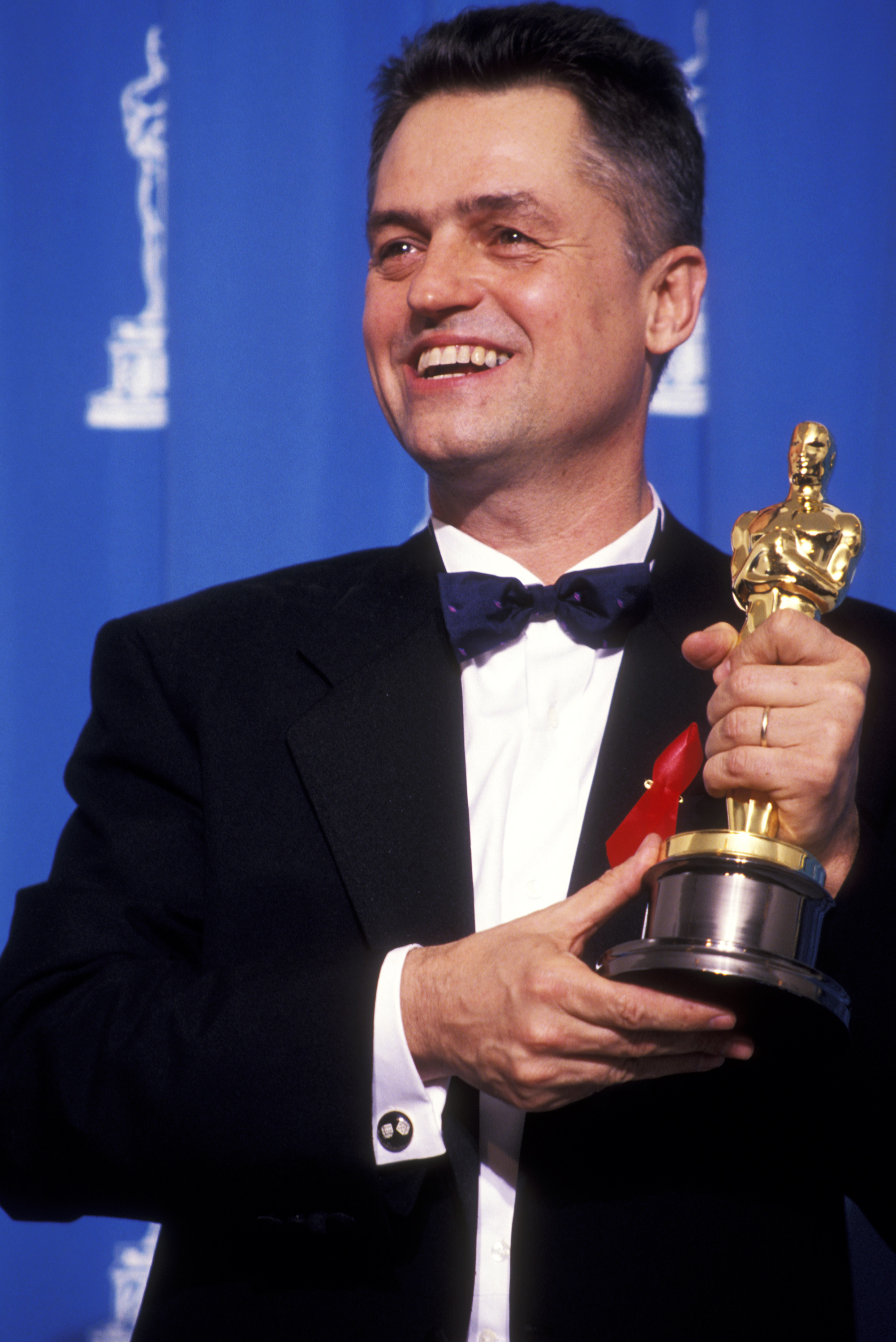
Few filmmakers of this century or the last have shown more outright love for oddballs than Jonathan Demme, who died on April 26 at age 73. It should hurt less, somehow, to lose a director who had a career as long, rich and varied as Demme’s was. But it doesn’t.
Demme got his start as a member of schlock impresario Roger Corman’s stable. His 1974 Caged Heat, fierce, funny and go-for-broke crazy, is one of the most pleasurable entries in the women-in-prison canon. He found explosive mainstream success with The Silence of the Lambs, in 1991, a grisly crime thriller made with an artist’s touch. In later years, he made loose-limbed, intelligent indies (2008’s Rachel Getting Married) and probing, cerebral theatrical explorations (2013’s A Master Builder). He was adept at music videos (he made superb ones for New Order and Bruce Springsteen, among others) and had a special gift for constructing documentaries about performers of all kinds, particularly musicians (most recently reveling in the enigmatic energy of Neil Young). And his Talking Heads concert film, Stop Making Sense (1984), is one of the best films ever made about the process of making art, any kind of art.

It should be easy to say goodbye to a filmmaker who achieved so much. But it’s not. There are plenty of modern-day directors who are cool, as Demme was, and some who perhaps have as much heart. But no one has shown such perfectly balanced proportions of both.
In obvious ways and in subtle ones, Demme approached every project with an unapologetically liberal bent and, even more importantly, with supreme compassion. His 1993 Philadelphia was one of the first Hollywood films to deal openly with AIDS and homophobia. If that picture was historically significant, and effective enough in dramatic terms, it didn’t represent Demme at his best. Demme’s real gift was his ability to open us up, without condescension, to the deep strangeness and off-kilter beauty of ordinary Americans, people of the city, the country, and everywhere in between. His career was a kind of coffee shop where everyone could come together and find something to talk about, or laugh about.
You can see that in Demme’s buoyant 1977 comedy Handle with Care (originally titled Citizens Band), about a group of people in small-town Nebraska whose lives intertwine in a kind of rambunctious mess. These characters—played by a roster of superb and somewhat undersung actors of the era, including Paul Le Mat, Candy Clark and Roberts Blossom—are real human beings with real problems. But they have also crafted alternate identities for themselves: They’re all CB radio users, and their handles—Chrome Angel, Spider, Electra—are monikers for the versions of themselves they’d like to be, speaking of glamour or excitement or at least just the opposite of boredom.
And in Demme’s wondrous 1980 comedy-drama Melvin and Howard, inspired by real-life events, Le Mat plays Melvin Dummar, a gas-station owner who learns that he may be an heir to the fortune of Howard Hughes (played by the supremely cantankerous Jason Robards). But that stuff doesn’t happen until near the end: Most of Melvin and Howard deals with Melvin’s shambling life, including his rocky relationship with his first wife, the gloriously loopy Lynda (Mary Steenburgen, who won a Best Supporting Actress Oscar for the role).
Melvin’s personal roadmap, like that of the characters in Handle with Care, is marked by bumbling kindness and heaps of of bad decisions. These are Demme’s people. There’s no immediate economic miracle for them, but their happiness—whatever bumpy, lumpy shape it may take—is of the utmost concern for him.
Demme’s movies were never about conformity. He was more interested in reinvention and rule-breaking. In Something Wild (1986), Melanie Griffith plays Lulu, a hot ticket in a flapper’s bob who kidnaps straitlaced banker Jeff Daniels, whisking off on a crime spree. These are characters who take chances, who define themselves two and three times over. Sure, we have only one life to live. But even though we’re fond of telling ourselves that life is short, in reality—if we’re lucky enough to live a normal life span—it’s actually quite long, or at least capacious. Demme’s films, at their best, assured us there was always room for more—more wildness, more heartbreak, more work, more joy and more love.
He was unfailingly generous with us, his audience, and he sought to bring us closer rather than divide us. Maybe that’s why it hurts so much to lose him.
More Must-Reads From TIME
- The 100 Most Influential People of 2024
- Coco Gauff Is Playing for Herself Now
- Scenes From Pro-Palestinian Encampments Across U.S. Universities
- 6 Compliments That Land Every Time
- If You're Dating Right Now , You're Brave: Column
- The AI That Could Heal a Divided Internet
- Fallout Is a Brilliant Model for the Future of Video Game Adaptations
- Want Weekly Recs on What to Watch, Read, and More? Sign Up for Worth Your Time
Contact us at letters@time.com